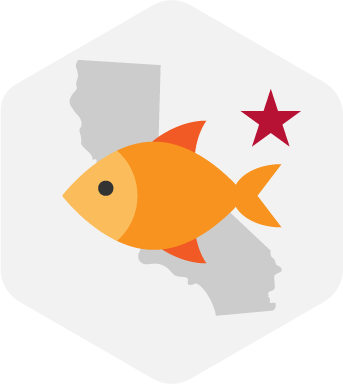California Coastal

Healthier low carb
Spike the volleyball, not your bad cholesterol! The California Coastal diet is a heart healthy system of eating that has the added benefit of easy weight loss or maintenance for most people.
California Coastal is a close cousin of the Forager and Hunter Gatherer diets in that it emphasizes low sugar and low glycemic carb living. Low glycemic carbohydrates are those that have minimal impact on blood sugar levels. For example, California Coastal dieters will choose yams over white potato since the yam will raise blood sugar more slowly than a white food. Many California Coastal dieters, especially those with markers for celiac disease, will find they do well on a diet that largely excludes grains. When foods like these are on the menu, they can be cooked and allowed to cool before being eaten. This allows resistant starch to form which lowers the glycemic index of that food.
But despite the fact that the California Coastal lifestyle is low in processed carbs, these beach bums need to get their earmuffs out when it comes to Paleo podcasts. California Coastal dieters are more likely to both make more cholesterol and clear less of the bad cholesterol when eating a diet that is high in saturated fat. In turn, this could increase their risk for heart disease. Does this mean saturated fat must be strictly avoided? Absolutely not. In fact, some in the California Coastal group may find they benefit from a piece of grass fed beef once every few weeks. However, it does mean that California Coastal dieters will do better emphasizing monounsaturated and omega-3 fats over saturated fats.
What is the scientific basis for this diet? With macronutrient ratios of 30% healthy fats, 45% complex carbohydrates, and 25% protein largely derived from plants and seafood, the California Coastal diet fits directly within ranges recommended by the latest United States Dietary Guidelines.
For more on the science of DNA diets, see our science page.
Most closely related diet: Forager
Primary difference with Forager: Foragers are very likely lactose intolerant whereas California Coastal dieters can tolerate some dairy, at least in theory. Many California Coastal genotypes will find they do better with goat and sheep dairy than with cow dairy.
Biggest challenge: Balance. The California Coastal diet is low glycemic, not zero carb. Assuming the California Coastal’s digestion can handle some grains, finding hacks to make some of these higher sugar carb sources lower on the glycemic scale can help round out the diet and not cause our California Coastal friends to rely too heavily on protein and fats for all of their calories.
Red meat friendly? Yes, as an occasional supplement. Red meat should not be a staple for California Coastal dieters but some may find they benefit from a 4-5 oz. piece of grass fed beef a couple of times a month.
Keto friendly: No. California Coastals do not have the fat metabolism for the traditional keto diet that is high in saturated fat, however, they may be able to get away with a plant based version of keto if they are so inclined.
Carnivore diet friendly? Nope.
Does this diet type handle fermented foods? Absolutely. Fermented foods can be included as a staple on the California Coastal diet. California Coastals are lucky in that they score well for both dairy and histamine. Of course, this doesn’t mean they will do well with unlimited amounts of yogurt and kimchi, but it’s more likely they will feel great with these foods as staples.
What about pancakes and refined grains: Birthdays and celebrations are an exception. but in most cases, the perfect pancake recipe for the California Coastal genotype is lots of nuts, seeds and berries, hold the pancakes. Anything made with flour is suboptimal for this diet type.
Go to breakfast: Poached eggs, sauteed spinach and black beans.
